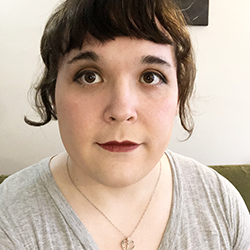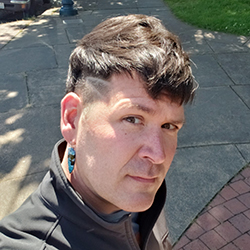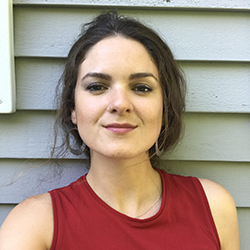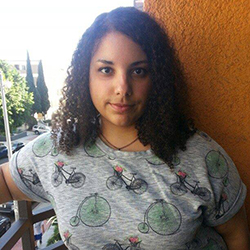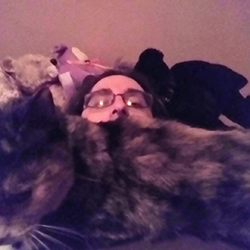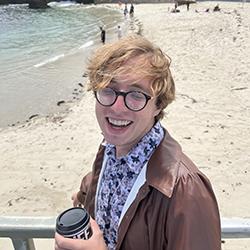The Chronicler of Silence
Before there was nothing, there was silence. This was the First Silence, and it held within it the possibility of all the other silences that would ever be. But the First Silence was not like the children born from it. The children are holes, spaces where something else isn’t. But the First Silence lacked nothing, because it lacked everything. It was the Mother.
What we call the Big Bang was the first disturbance of the great and empty Mother which had been the world. From disturbance came change, and what caused change was called something. The First Silence was changed by the Big Bang into the cold and quiet fragments which we call space and the tumbling forward which we call time. Amongst it all, stars shone and planets spun around them.
The new silences became passive. They learned to contain rather than be. They became the stage on which the silver age of Silence played out.
The only thing they did not learn was how to mean.
But in time, a certain combination of something and nothing learned to hear. This new creature, a thing and a not-thing at once, could both hear silence around it and hold silence within it. It was a mirror to the world, and even silence was multiplied in each one into a million new silences, the great-grandchildren of the first Mother.
Each of these hidden silences knew something. Some revealed what they knew and some did not. But none of them knew the one thing, the single secret that the First Silence knew, the secret of which all their secrets were only memories.
Even the Chronicler of Silence didn’t know that.
I came to the city to escape quiet. Most of the people I met there did the same. We didn’t know much about what we were supposed to do in the world, but we did know it wasn’t supposed to be quiet. We were all supposed to be big and loud, just like the city, and everyone was supposed to be listening.
The problem was, they weren’t.
I went through interview after interview, phone call after phone call until they all started to blur together in my head. The only thing that stayed the same was the other person was never listening. They looked, read, spat back a few bland words, but never heard anything.
If they had listened, they would have seen how desperate I was. We were all desperate, and they could only help one or two of us. Having to tell the rest of us no would have been too much with ears open. So, instead, I talked and they turned it into silence.
Meanwhile, I made friends, some new and a few old. We listened to each other, as best we could, but it hurt. I didn’t like when they noticed how desperate I was, and there wasn’t much else to hear. So I fell into silence around them too. It was the easiest thing to do.
Slowly, I sank in between those two silences.
And then, one day, when I was as close as I had ever been to falling, I saw her.
The Chronicler of Silence.
As all bodies have a shadow, so each word has a silence. Every time we say anything, we tear nothing into opposite pieces: the words we share and the silences they fit in.
Words are the product of silence, for it is only in silence that we can speak. Silence is the product of words, for it is only when we hear that we understand silence.
Somewhere, for every sentence that we have ever spoken, for every disturbance we have made in the world, there is a silence, a memory of what was done.
Words fade into memory, but silence is forever. Long after all of us, the silences we left will hold the memories of us for any who knows to listen.
She looked exactly as she did in the pictures. The same dark-blue, tattered robe, the same tall body, short hair and sharp eyes. The other people on the street avoided her gaze, but I was drawn to it, until I was sure she was looking at me, and me alone.
Silence radiated off her like heat. The passers-by on the street, the ones who were lost in their conversations and noise, were all driven, if only for a second, to silence by her presence. But where they skipped along it, I plunged into the silence she carried. It seemed bottomless.
I had first learned of her the way all children do. My second or third grade teacher had asked a question that no one answered. The room breathed the treacly, shame-worn silence of a classroom waiting. One of the boys said “Well, there’s one for the Chronicler!” and the class burst into laughter. The teacher said a few words about how Silence was no laughing matter and things went on.
The rest had to happen in silence. I had to wonder, make guesses and finally learn the truth in silence. She was made for silence, and silence was made for her. I don’t remember when I found out my answer, but I remember how quiet asking felt.
And now, she stood, looking at me, wrapped in a totally new kind of silence, one I had never encountered before.
I understood, in that moment, that she was calling me. No, not calling; calling would break her unbreakable silence. Rather, she allowed me. She would never ask for me, but if I followed, she would not reject me either.
Like all silence, hers meant freedom.
I told it yes.
I followed.
As a marble block is nothing until it is carved, so noise is nothing until silence is made in it. We cut away the blaring chaos of the world until we approach a single quiet moment, a single lack in the world’s raucous din.
Silence is a human invention. Silence is the human invention. A tool is simply something from which all but one possibility has been removed. We have never been able to create new possibilities, only to refine and sharpen the ones we find.
Humans spend their life damming the river of the world, forcing it to flow in only one direction, then through only one channel, then through one fraction of that channel. With every approach to silence, they create power, as the world struggles to fill in the vacuums they have neared.
Finally, we all become silence ourselves, a silence full of every near silence they ever created. Our bodies may burst into maggots and worms which carry on the din, but our silence is remembered after us.
Humans will never create true silence. There is never and will never be true silence, but the idea of it lives in the deepest core of us all. Somewhere beyond the ability of any person to see, beyond the ability of any circumstance to affect, lives the deep silence in each person. No other person can see it in you, any more than you can see it in another. But you feel its presence inside yourself. You feel that it must be there. It must be waiting.
Silence of apprehension
Silence of apprehension, fearful
Silence of apprehension, tragic, accepting
Silence of apprehension, joyful, unaccepting
Silence of uncertainty
Silence of uncertainty, authentic
Silence of uncertainty, inauthentic (See Silence of apprehension)
Silence of adoration
Silence of adoration, authentic
Silence of adoration, inauthentic
Silence of adoration, unsure
Silence of adoration, disappointed
Silence of adoration, fulfilled (see Mythical Silence)
Silence of acceptance
Silence of acceptance, authentic
Silence of acceptance, inauthentic, (See Silence of uncertainty)
Silence of acceptance, loving
Silence of acceptance, anxious
Silence of acceptance, symmetric
Silence of acceptance, asymmetric (See Painful Silence)
Silence of acceptance, asymmetric, rebellious
Silence of acceptance, asymmetric, cruel
Silence of acceptance, asymmetric, uncertain
I paid no attention to the world as we walked past it, only to her, and her silence which now enveloped me.
The people we walked past on the street could tell I was a part of her world now. They avoided my eyes just the same way they avoided hers. They were involved in the loud, crashing things, for now. They wanted nothing to do with those who dealt in lack and stillness.
I was like her. My breath calmed, approaching the soft, quiet rhythm of hers. My body tried to follow how the Chronicler moved but was too loud and clumsy. My feet slapped like flippers on the sidewalk, and my legs whipped my skirt back and forth, back and forth.
Someday, I would learn. Someday, I would pour out silence just like she did.
We came to a brick apartment building, four stories tall. She opened the door and I had to leap forward to catch it after she went in. She held the next door just long enough for me to grab it before letting go. Then, she led me up three flights of stairs and into her home.
The silence of her sanctum was perfect and entirely unique. This was her silence, one hat she had made and only she could unfold. It was an honor beyond expressing to stand in it, and to fade into its blankness.
Every wall of the apartment was covered with shelves which were filled with rows and rows of notebooks. In the center of the room was a low table with several more notebooks, some open and others closed. They were the Chronicles. Every kind of silence, named, listed and described. The work of a lifetime unraveling the single mystery of nothingness.
Without a moment of pause, she knelt down in front of the table, picked up a pen and started writing.
She must have been observing silence in the world, I realized. She must have been looking for new kinds that she hadn’t seen.
Nervously, I stepped behind her and read over her shoulder as she continued.
Silence of indifference
Silence of indifference, authentic
Silence of indifference, feigned
Silence of indifference, thoughtless
Silence of indifference, cruel
Silence of hope
Silence of hope, authentic
Silence of hope, feigned
Silence of hope, believed
Silence of hope, painful
Silence of hope, symmetrical
Silence of hope, asymmetrical (see Silence of indifference)
Silence of waiting
Silence of waiting, joyful (See Silence of hope)
Silence of waiting, painful (See Silence of Indifference, cruel)
For the first days, I watched her while she wrote or wandered the room and read other of her notebooks. But she didn’t like this; I could see it in her eyes. She had not invited me only to watch, if she had invited me at all. Maybe she had only wanted me for a single moment. Maybe she had never wanted me at all.
I chose an answer. If I was not here to observe her work, then I must be here to share it. I found a drawer in another room full of blank notebooks, and another full of pens. The next time she settled down to work, I settled down opposite her and began to write myself.
Of course, I didn’t know her or her system well enough to hope that I could add to it. So instead, I began something entirely different. Where she listed every form of silence in all their interconnections, I would write their history. My notebooks would record the origins of silence, how each silence grew into what she had found them.
A new form of Chronicler for a new Chronicle.
She did not look at me as I wrote, but that meant she also didn’t glare at me. I took this for approval, the most approval I had yet gotten from her. I wasn’t bothering her. I wasn’t breaking her silence. I was allowed.
The world has always been full of noise, and silence was always inside us.
When we listen to the world, we cut away the noise in which we live, step by step. First, we ignore the background, the world around the pieces of it that we think to see. Then, we ignore the precise highs, lows and warbles; a sound becoms an idea of a sound. Finally, we turn that idea of a sound into an idea of something making it. Then, and only then, that idea can enter the silence within.
It is natural that humans are afraid of silence. To face silence is to face what we are and nothing is more fearful than that. It’s easier to live in the world of noise, where everything is made for something else and every sound means another sound. Meanwhile, silence, our core, waits and means nothing.
When we die, only the din we added to is left behind. People remember our words, our deeds, the things they thought of us, but our silence is lost. Our core is lost, because our core is quiet and quiet can be felt, but never recalled.
One day, the world will be only noise, eternally echoes heard by no ear. But for now, there is silence, and we are its guardians. We tend it every day. We learn the shape of our silence and we dream what we cannot feel of others. We love it as we can only love nothing.
This is the universal secret. It is one we all must keep because to break it would be to break the silence it is the secret of.
We lived together, or rather, we lived beside each other.
I don’t know exactly where she got food. Probably stores simply didn’t ask her to pay. In any case, there was always enough for us both. We would eat quickly, quietly, and then return to our writing.
She didn’t like my writing the way I thought she would. That is, she liked that I was writing at the same time she was, but she didn’t care for any of the stories I wrote. Each time I showed one to her, she would read it irritatedly and turn away, annoyed.
I would pick a new page and write a new story. But before long, I had lost hope that this next would be the one to please her. I wrote because she was writing, because I had to write something. But I didn’t believe my words any more than she did.
Creating something without believing it is a kind of silence too. I wondered if it was included in her classification.
Then again, maybe it would be enough to simply record:
Silence of apprehension, fearful
Silence of uncertainty, authentic
Silence of waiting, painful
Painful silence
Painful silence
Painful silence
There was nothing to mark the day as different from any other when it came. I went walking because I couldn’t bring myself to write anything. She said nothing as I left.
When I returned, the door was locked.
I knocked, desperately, but there was no answer. Of course there was no answer. The room was a place of silence, and who had I been to try to turn it into something else?
Silence of adoration, disappointed.
There was no way to know what her silence meant, and all of mine became nothing more than a few words. Her words.
Silence of anger, hopeless.
Down the stairs. I hated her words, hated they ways they fit and the ways they didn’t fit. Because they didn’t, not really. Her words were short, quick. But the silences in me reached out long past her simple, sharp words.
Silence of mourning, unwilling.
If I had just written a little better, if I had been a little wiser, if I had known how to be what she wanted of me.
Silence of possibility, lost (see Useless silence).
It was useless, wasn’t it? It had always been useless.
Painful silence.
Even pain was useless.
I opened the door. A woman who was walking across the street met me with her eye. Her gaze lingered on me briefly before turning away. Already, her silence had abandoned me. I was trapped, back in the world of noise.
Silence of uncertainty, authentic.
And what had I learned from any of it? What had I taken away?
The answer hung in the back of my mind. I knew it was true, but I feared to accept it.
Silence of apprehension, fearful.
Nothing, the voice whispered. You’ve learned nothing.
Silence.
There is nothing to learn about silence. .
Silence is and it has been. Silence is beyond history because silence is beyond change. All silence is the same silence and it will be as long as silence is. Even the smallest noise is something but silence is nothing. Silence is emptiness, and emptiness is the lack, not of one thing, but of anything.
Stories cannot speak of silence, because stories tell of change.
Names cannot name silence, because names are for things.
Silence is beyond stories.
Silence is beyond names.
Silence is where stories and names go to die.
Silence.
I walked down the street, unsure where I was going and what I was walking away from.
Silence.
Lillie E. Franks is a trans author and teacher who lives in Chicago, Illinois with the best cats. You can read her work at places like Always Crashing, Poemeleon, and Drunk Monkeys, or follow her on Twitter at @onyxaminedlife. She loves anything that is not the way it should be.
